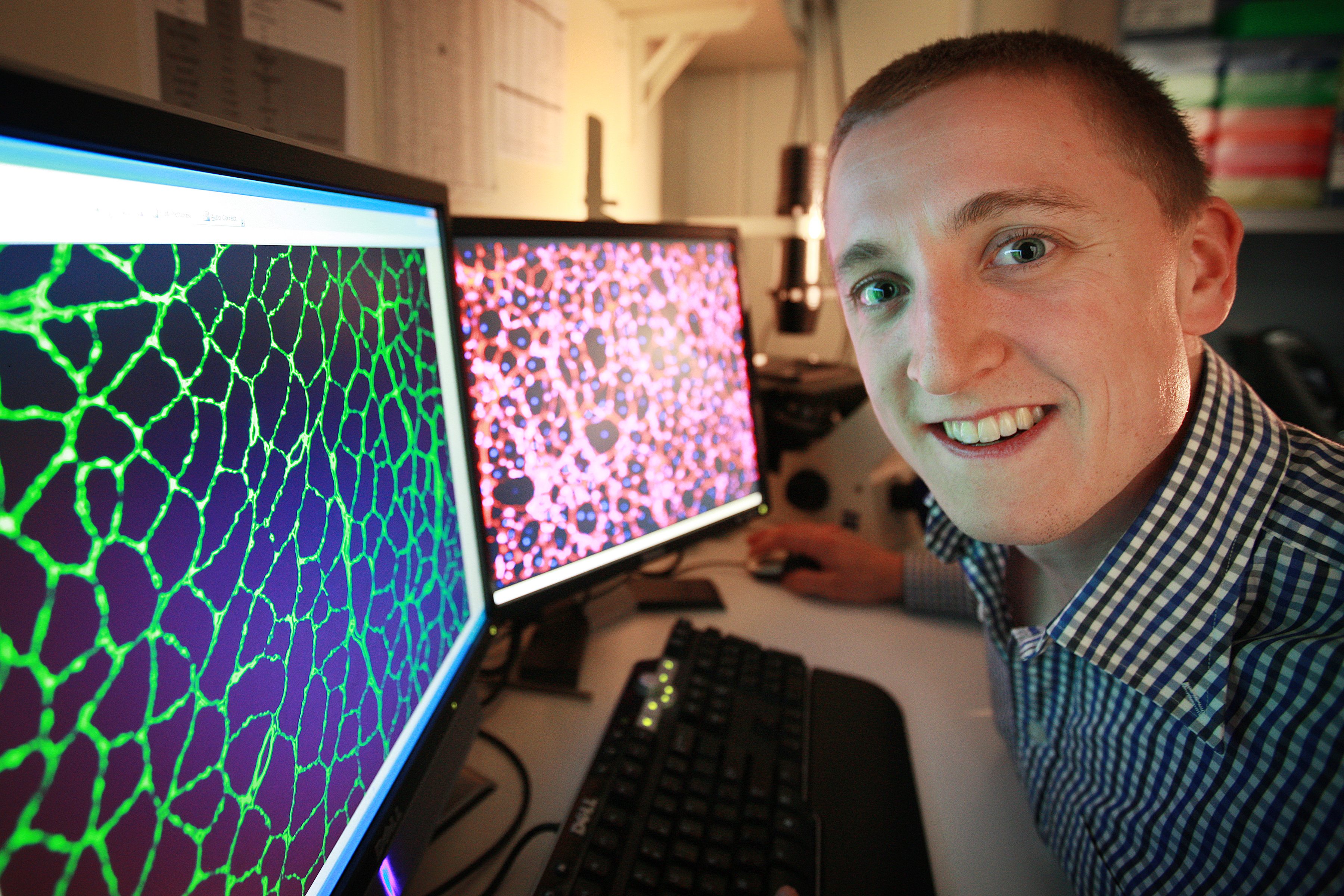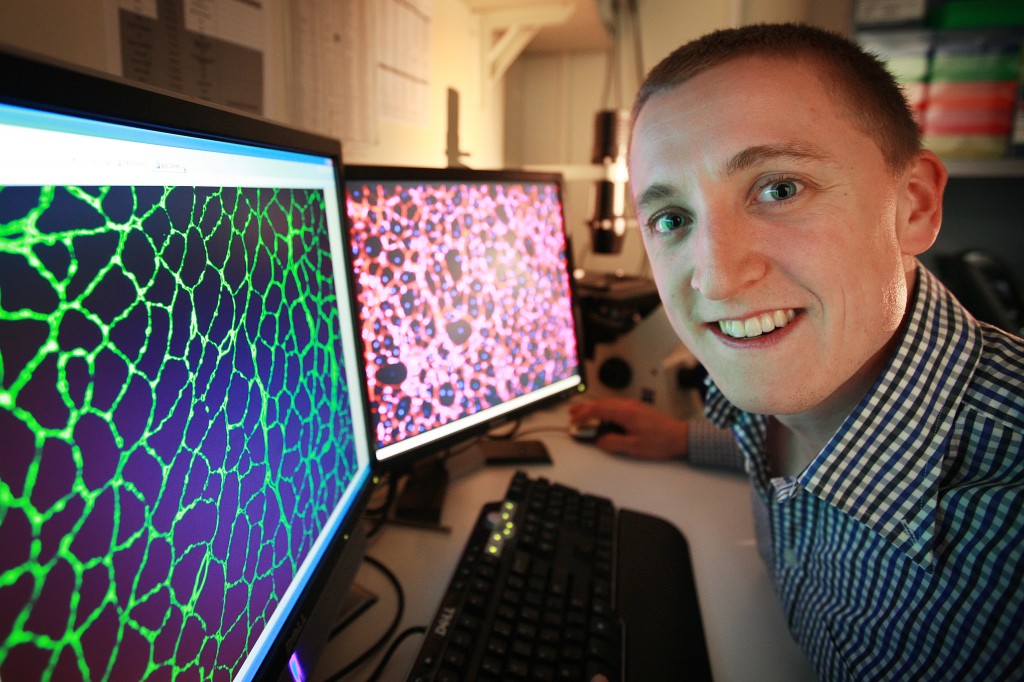Victoria’s Leading Postgraduate Health and Medical Researchers Recognised

 Premier Ted Baillieu and Minister for Health David Davis today announced that Dr Stefan Gehrig has been awarded the prestigious Premier‟s Award for Health and Medical Research for 2012. The Premier‟s Award for Health and Medical Research recognises and honours the achievements of Victoria‟s early career health and medical researchers.
Premier Ted Baillieu and Minister for Health David Davis today announced that Dr Stefan Gehrig has been awarded the prestigious Premier‟s Award for Health and Medical Research for 2012. The Premier‟s Award for Health and Medical Research recognises and honours the achievements of Victoria‟s early career health and medical researchers.
Mr Baillieu said Dr Gehrig won the award from a highly competitive field of young Victorian researchers for his far-reaching investigation into Duchenne muscular dystrophy (DMD).
“Dr Gehrig discovered that increasing levels of a specific protein in muscles has the potential to treat DMD – a severe and progressive muscle wasting disease,” Mr Baillieu said.
“Around one in every 3,500 boys worldwide is afflicted with DMD for which there is currently no cure,” said Mr Baillieu.
Dr Gehrig found that increasing levels of „heat shock protein 72‟ in the muscles of mice could help treat DMD.
Minister Davis presented Dr Gehrig with the coveted $16,000 prize at an award ceremony this evening at Government House.
“Dr Gehrig discovered that increasing this protein in muscles improved the function of a pump responsible for controlling calcium levels, confirming it as a target for future therapeutic drugs for the disease,” Mr Davis said. “Dr Gehrig also discovered that administering the drug BGP-15 improved overall muscle function and increased the lifespan of mice,” said Mr Davis.
“This is promising news for boys with DMD who at the moment are treated with corticosteroids, which come with significant side effects. “We anticipate that these findings could serve as the basis for future clinical trials within the next five to ten years.”
The impact and significance of Dr Gehrig‟s work has been acknowledged internationally and his research was recently published in the world-leading research journal Nature.
The Department of Physiology, University of Melbourne, where Dr Gehrig conducted his research, received the $30,000 Jack and Robert Smorgon Families Award. Andrew Blode, CEO of the Jack and Robert Smorgon Families Foundation, said the Foundation was delighted to support the significant contribution made by Victorian institutions in the field of health and medical research.
“This year we congratulate the Department of Physiology, University of Melbourne. This small team of dedicated researchers has made a significant contribution for patients with DMD and their families, and we applaud them,” Mr Blode said. Dr Gehrig‟s research was performed in collaboration with the Baker IDI Heart and Diabetes Institute, Deakin University and the University of Oxford in the United Kingdom.
Three other commendees were presented with $8,000 each for their outstanding contribution in the field of health and medical research:
- Mr Michael Livingston, a researcher with Turning Point Alcohol and Drug Centre, for his work on the availability of alcohol and its effect on consumption, health and social problems. His research has led to changes in alcohol regulation in Victoria.
- Dr Elena Tucker, a researcher with the Murdoch Children‟s Research Institute, for her work on mitochondrial disease – characterised by an inability to generate the energy required for normal bodily functions and often with fatal consequences. Her research, using next generation sequencing technology, has the potential to diagnose the disease in children within a month using just a blood sample.
- Dr Sophie Valkenburg, a University of Melbourne PhD student through the Department of Microbiology and Immunology, for her research on the role of T-cells to recognise and protect against different influenza viruses. This raises enormous possibilities for the design of new universal vaccines.
The Victorian Government and the Australian Society for Medical Research present the Premier‟s Award for Health and Medical Research each year during Medical Research Week. For more information visit: www.business.vic.gov.au/premiersaward
 Follow
Follow